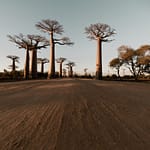Meghalaya : Often called the “Scotland of the East,” a name given by the British during their colonial rule of India, Meghalaya has an abundance of greenery and spellbinding landscapes. Rolling, green hills riddled with numerous rivers and towering waterfalls, and dotted with spectacular lakes make Meghalaya a nature lover’s paradise. Dense forests cover 70% of the state supporting a rich diversity of flora and fauna. Mawsynram, the planet’s wettest place is also located in Meghalaya.
The people living amidst such natural aura are also friendly and peaceful. Tribal people make up the majority of Meghalaya’s population. The Khasi, Garo, and Jaintia are the three major tribes living in the state with the Khasis being the largest among them.
Meghalaya’s tribes have their own sets of customs and beliefs. However, the Khasi, Garo, and Jaintia all have a matrilineal society where inheritance is based on kinship with the mother or the female line.
Khasi Tribe of Meghalaya : The Khasi is an indigenous tribe of Meghalaya with a population of around 1,411,775 in the state. The Indian state of Assam and neighboring country of Bangladesh also hosts small populations of this tribe. Most Khasis practiced their indigenous religion before the arrival of the Christian missionaries. Today, around 85% of people adhere to Christianity. However, they have not completely discarded their traditional religious beliefs and practices. Inter-community marriages have also given birth to a small population of Khasi Muslims, and Khasi Unitarianism has a significant following.
The Khasi people are divided into several clans but united by the Mon-Khmer language. Cultivation has been their primary source of livelihood since ages. In the present day, however, Khasi youth has entered into many other professional fields and are successful doctors, engineers, businessmen or women, teachers, and more.
Despite modernism touching the lives of the Khasi people, they have not discarded their ancient beliefs and traditions and adhere to them with great pride. They also believe that nature and divine are intrinsically linked and that the destruction of the former could sever these ties.
The living root bridges of Meghalaya are also born out of the creative genius of the war inhabitants of the Khasi community. These wonders attract thousands of international tourists to the state.
The Khasi people of Meghalaya are officially recognized as an ethnic minority in India and have certain privileges. They are allowed to practice their customary laws and also enjoy tax benefits not available elsewhere in India. They have land designated for their use and a quota system that reserves seats for them in education and jobs. The Khasi Hills Autonomous District Council is the official body protecting the unique laws of these people.


